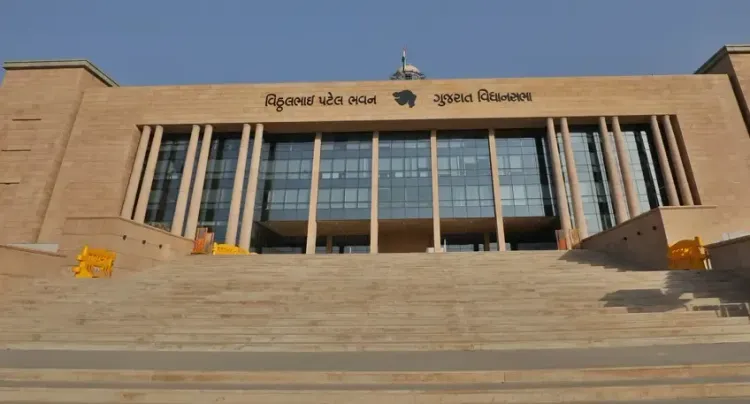Gujarat Government Conducts Labour Rights Workshop for Outsourcing Agencies with Nearly 300 Participants

Synopsis
Key Takeaways
- Understanding the Minimum Wages Act
- Compliance with the Contract Labour Act
- Importance of timely wage payment
- Insights on the tendering process via GeM
- Self-certification schemes for employers
Gandhinagar, Jan 30 (NationPress) The Gujarat Labour Commissioner hosted a workshop aimed at providing guidance to outsourcing agencies that supply labour to various state government departments. This significant event took place at Babasaheb Ambedkar Bhavan in Gandhinagar, led by Gujarat's Labour Commissioner, K.D. Lakhani.
The primary goal of the workshop was to inform agencies about labour laws that safeguard workers' rights. Essential regulations discussed included the Minimum Wages Act (1948), Contract Labour Act (1970), Equal Remuneration Act (1976), Payment of Bonus Act (1965), and the Payment of Gratuity Act (1972).
Officials also shared valuable insights regarding the tendering process via the GeM portal and elaborated on the obligations of service providers in government offices.
Approximately 300 agencies from across the state participated in this session, engaging in discussions about best practices and compliance measures. K.D. Lakhani addressed the attendees, stressing the necessity of adhering to labour laws to guarantee fair treatment and welfare of outsourced workers.
Gujarat’s labour laws constitute a comprehensive set of regulations designed to protect workers' rights and ensure fair and safe working conditions across various sectors. Key laws include the Minimum Wages Act of 1948, which guarantees that workers receive at least the minimum wage set by the state government, which varies by industry and region.
The Factories Act of 1948 regulates health, safety, and welfare standards in factories, ensuring that working conditions meet established criteria and that workers are shielded from hazardous environments.
The Industrial Disputes Act of 1947 aims to foster industrial peace by providing a legal framework for investigating and resolving disputes between employers and employees.
The Payment of Wages Act of 1936 ensures timely wage payments to workers and outlines the conditions under which wage deductions can occur.
The Contract Labour (Regulation and Abolition) Act of 1970 addresses contract labour employment in specific establishments, regulating employment terms and outlining conditions for abolishing contract labour.
Moreover, Gujarat has introduced amendments in recent years, such as shortening the timeframe for filing disputes and enhancing compensation for workers facing termination.
The state has also launched self-certification schemes for employers to ease compliance with labour laws, alongside incentives for those who meet audit and assessment standards.










